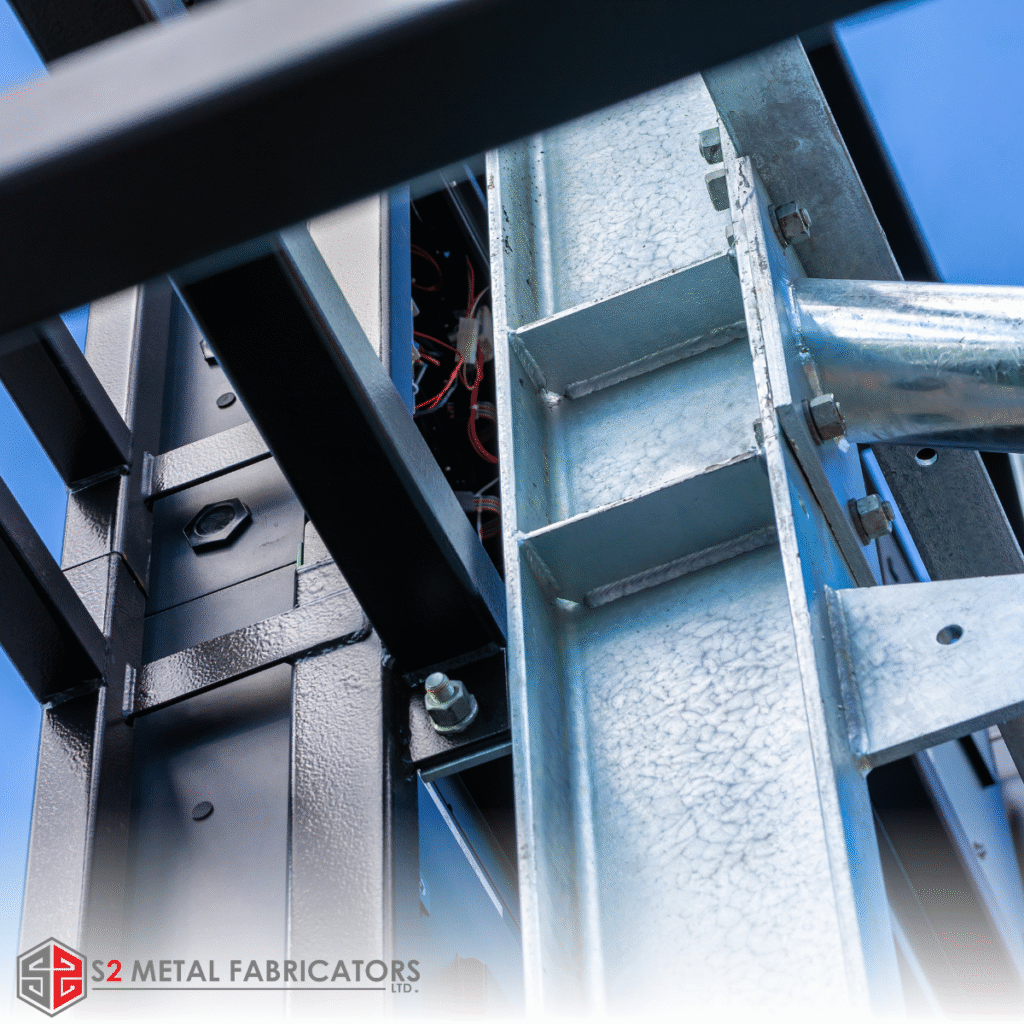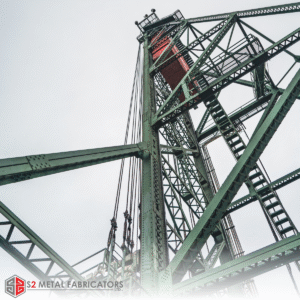In fast-paced industrial and commercial projects, small delays can have major impacts. That’s why more project teams are adopting modular thinking, an approach to design and fabrication that prioritizes off-site preparation, smarter sequencing, and faster installs.
At S2 Metal Fabricators, modular fabrication isn’t just a buzzword. It’s a practical strategy we use to help clients stay on schedule, improve quality control, and reduce on-site complexity. Whether we’re fabricating equipment platforms, process pipe supports, or custom access ladders, modular planning is often what keeps the job moving.
Here’s what that looks like—and why it matters.
What Is Modular Fabrication?
Modular fabrication involves building large sections or components off-site in a controlled environment, then delivering them in ready-to-install formats. These modules may include platforms, skids, stairs, or multi-part assemblies that are pre-welded, tested, and prepared for quick field installation.
Rather than fabricating and assembling everything on location, modular thinking allows more of the work to be done in advance—off-site, under cover, and with fewer variables.
This approach improves scheduling, enhances quality control, and minimizes downtime on-site. For industries that operate in remote locations or tight facilities, those benefits can be significant.
Why Modular Matters for Engineers and PMs
From a planning perspective, modular fabrication supports several key goals:
First, it reduces the amount of field work required. That means less exposure to weather, fewer access issues, and lower safety risks during install.
Second, it simplifies coordination. When modular sections arrive labeled, pre-drilled, and ready to bolt in place, site crews can install faster and with fewer errors.
Third, it offers greater predictability. With most of the fabrication handled in-shop, the quality is easier to control, and the schedule is less likely to shift due to site conditions.
These advantages are especially valuable for engineers and project managers overseeing complex builds with tight windows.
How S2 Applies Modular Thinking
At S2, we often recommend modular fabrication when the project site poses logistical challenges, or when time is tight. For example, on a recent job requiring elevated platforms for an industrial facility, we broke the build into manageable modules. These were pre-assembled and welded in our Chelmsford shop, then shipped for fast on-site installation.
By doing the heavy lifting in advance, the client avoided extended shutdowns and kept their timeline intact.
In another case, we prefabricated a series of stair and handrail assemblies for a mine-site access upgrade. Because they were fabricated in shop and shipped in sequence, the site team could install quickly with minimal disruption to operations.
These types of builds show how modular thinking allows fabrication to support—not slow down—the broader construction plan.
When to Consider a Modular Approach
Modular isn’t always the right choice, but it can be a smart option when:
- On-site work hours are limited or expensive
- Weather or location adds risk or complexity
- The project has a tight deadline or fast-track schedule
- Consistency and quality control are essential
If any of these factors are in play, modular fabrication might be the solution that keeps your project on track.
Fabrication That Fits the Bigger Picture
At S2 Metal Fabricators, we believe steel work should never hold up progress. Modular fabrication helps us align our work with yours—supporting faster installs, safer builds, and better results.
If you’re managing a project that needs to move fast without sacrificing quality, let’s talk about how modular thinking can help.



